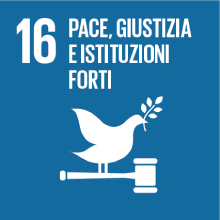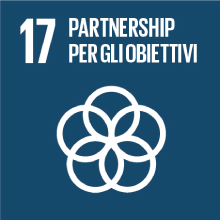HISTORY OF GLOBAL RELATIONS
- Anno accademico
- 2024/2025 Programmi anni precedenti
- Titolo corso in inglese
- HISTORY OF GLOBAL RELATIONS
- Codice insegnamento
- LT9039 (AF:445099 AR:288018)
- Lingua di insegnamento
- Inglese
- Modalità
- In presenza
- Crediti formativi universitari
- 6
- Livello laurea
- Laurea
- Settore scientifico disciplinare
- M-STO/02
- Periodo
- 3° Periodo
- Anno corso
- 2
- Spazio Moodle
- Link allo spazio del corso
Inquadramento dell'insegnamento nel percorso del corso di studio
-Analyze Global History in a multidisciplinary perspective able to encompass political, economic and cultural factors
-Analyze networks of cultural, economic and political relations
The above-mentioned three specific objectives aim to give students the instruments necessary to develop a critical view of the topics discussed and to develop an independent and multidisciplinary methodology for the analysis of historical phenomena to better understand the present.
Risultati di apprendimento attesi
- Understand the general framework of the historical analysis of globalization
- Understand the specificity of the early modern period and its heritage
- Understand the multidisciplinary character of the historical analysis
2. Ability of applying knowledge and understanding
- Understand the general framework of the historical analysis of globalization > Ability of discussing subjects related to the field (Global History) in a specialized language and according to an historical methodology
- Understand the specificity of the early modern period and its heritage > Ability of pinpointing the characters of the early modern period and confronting them with the following ages
- Understand the multidisciplinary global character of the historical analysis > Ability of applying the historical methodology acquired also to other fields of study (e.g. other courses, final dissertation)
3. Judgement abilities
- Ability of connecting the facts and data learnt during lessons
- Ability of organizing the course materials (lessons and readings) in a coherent interpretation
4. Communicative abilities
- Ability of presenting the issues related to the field of study using specialized language
- Ability of presenting the knowledge acquired from lessons and readings in a coherent discourse
5. Learning abilities
- Ability of taking notes during lessons
- Ability of critically reading the assigned bibliography
- Ability of connected the knowledge acquired to nowadays issues
Prerequisiti
Contenuti
This course will take into account major issues in Global History (i.e. the history of how the world became "globalized" and interconnected), with specific focus on the following aspects:
- globalization: perceptions and practices
-understanding global history as an analytical tool
- understanding the origins of globalization
- understanding globalization as cultural, political and economic interconnectedness
- perceptions of "the other"
-imagining other realities: globalization and utopias, globalization and reforms
- how people became aware of living in a globalized world during the early modern age
-globalization of disease
- representations of a globalized world VS the emergence of nationalism
Testi di riferimento
1. their class notes
2. the slides and the materials available on moodle
Suggested readings:
Charles H. Parker, Global interactions in the Early Modern Age, 1400-1800, Cambridge, Cambridge University Press, 2010
Steven Grosby, Nations and Nationalism in World History, Routledge, 2022
Benedict Anderson, Imagined Communities: Reflections on the Origin and Spread of Nationalism, 1983
Filippo de Vivo, Information and communication in Venice : rethinking early modern politics, Oxford : Oxford University Press, 2007
Sanjay Subrahmanyam, Three ways to be alien : travails & encounters in the early modern world, Waltham ( Massachusetts) : Brandeis university press, 2011
Serge Gruzinski, La machine à remonter le temps, Paris, Fayard, 2017
Frank Trentmann, Empire of things : how we became a world of consumers, from the fifteenth century to the twenty-first, New York : HarperCollins, 2016
Modalità di verifica dell'apprendimento
Exam: oral.
Number of questions and structure:
-if a student presents in class and submits the script they will receive a score between 0 and 3 and such score will be added, in case, to the grade achieved in the oral exam; the exam will consist of two questions, the first on their paper and the second on an issue explored during the course.
-if a students submits the script without presentation, the exam will consist of two questions, the first on their paper and the second on an issue explored during the course.
-if a student doesn't submit the script, the exam will consist of three questions.
Detailed description of the expected learning results.
Written paper+presentation: expected learning results 2.Ability of applying knowledge and understanding, 3.Judgement abilities and 4. Communicative abilities.
Final oral exam. The exam aims to assess the critical understanding of the contents discussed during the course and the individual reflection on the assigned materials. It will therefore consist of two/three questions. The approximate duration is 15-20 minutes: expected learning results 1.Knowledge and understanding, 3.Judgement abilities, 4. Communicative abilities, and 5.Learning abilities.
Regarding the grading, the exam will be marked on a scale ranging from 0 to 30. The minimum passing grade is 18. Honors ("lode") will be granted only for exceptional capacity of judgment and excellent knowledge of the topics under evaluation
Modalità di esame
Metodi didattici
Case study analysis
Ppt presentations
Written and figurative sources
Digital Humanities
Altre informazioni
Students with disabilities can contact the Disability and Accessibility Office (disabilita@unive.it) to take advantage of the services available (e.g. alternative examination methods, readers, etc.).
Students interested in carrying out a bachelor's degree thesis in History of Global Relations can contact the professor for the appropriate vademecum (by writing directly to giulia.delogu@unive.it) or they can meet to the professor in her office hours. A preliminary vademecum is available at the Notices section of the professor's webpage.
Obiettivi Agenda 2030 per lo sviluppo sostenibile
Questo insegnamento tratta argomenti connessi alla macroarea "Cooperazione internazionale" e concorre alla realizzazione dei relativi obiettivi ONU dell'Agenda 2030 per lo Sviluppo Sostenibile


